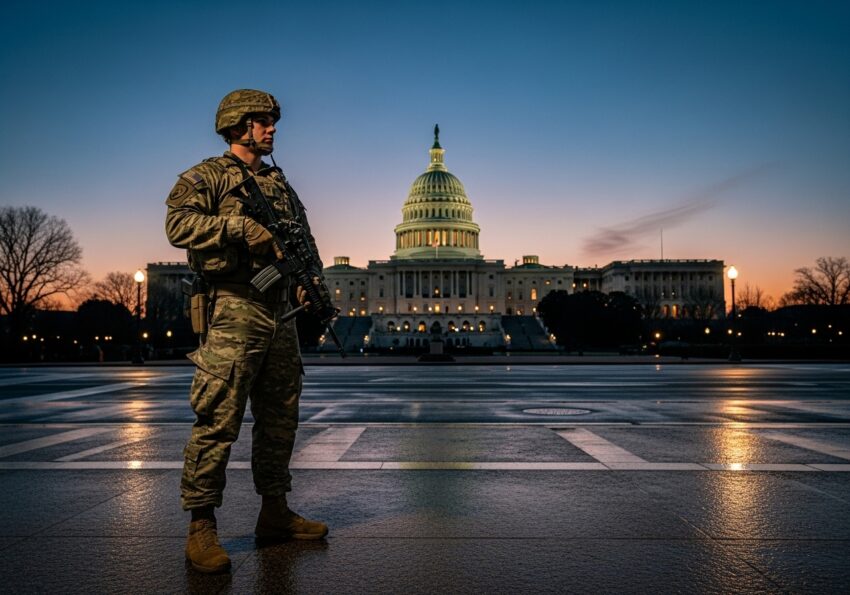When President Trump ordered the National Guard into Washington, D.C. earlier this month, the usual suspects in the media clutched their pearls and screamed about “militarization.” Now that the streets are quiet, and the murder rate has dropped to zero for nine straight days—a first in years—they’re even more upset. Why? Because it worked.
Let’s not pretend this is about policy. It’s about power. The media class, the D.C. city council, and the progressive holdouts in Biden’s crumbling orbit wanted to keep the narrative going: that crime is too complex to fix, that root causes matter more than handcuffs, and that any effort to enforce laws is somehow authoritarian. Trump just showed America how hollow that story really was.
Deploying 2,200 National Guard troops with strict rules of engagement—no weapons used unless under direct threat—wasn’t some iron-fist crackdown. It was a message: the days of letting the criminals run the show are over. And like clockwork, the criminals got the message. The bodies stopped dropping. The carjackings slowed. The city exhaled.
But don’t expect the media to celebrate. They’ve spent years turning D.C.’s chaos into a symbol of progressive compassion—poverty, addiction, and violence framed as policy failures that require more funding, more bureaucracy, and more hand-wringing. Trump’s simple solution—put boots on the ground, protect the innocent, lock up the predators—undermines the carefully built illusion that only Democrats understand how to govern cities.
Look closely, and the real fear isn’t about troops on the streets. It’s about the optics of success. If Trump can clean up the nation’s capital in two weeks, what does that say about the people who let it rot for years? What does it say about the soft-on-crime prosecutors, the defund-the-police activists, and the city council members who thought banning traffic stops would make things better?
Senator JD Vance said the quiet part out loud: “Why did we accept that?” He’s not just talking about D.C.—he’s talking about the whole political culture that let crime spike from coast to coast, all in the name of so-called justice reform. Vance is clearly staking out territory as a law-and-order voice in the Senate, and he’s aligning himself closely with Trump’s no-nonsense approach. That’s not just ideology—it’s a political move. Vance knows that safety wins elections, and he’s betting that voters are done with excuses.
Meanwhile, the Democrats are caught in their own trap. They can’t cheer the drop in crime without crediting Trump. They can’t argue that the National Guard didn’t help, because the results speak for themselves. So instead, they resort to tone—claiming the deployment feels “militarized,” “escalatory,” or “dangerous.” It’s all about feelings, because the facts are too damaging.
This is more than just a policy win for Trump—it’s a reassertion of control over the narrative. For years, the left built a myth that crime was unfixable without massive social change. Trump just threw that myth into the Potomac. And that’s why the media is panicking.
They know what comes next. Other cities will look at D.C. and wonder, “Why not us?” Governors who were once afraid to take action may start to rethink their playbooks. Voters in blue districts will start asking why their leaders seem more afraid of offending criminals than protecting citizens. And the 2026 midterms? They’re suddenly looking like a referendum on public safety.
The game has changed. Trump didn’t just clean up Washington—he exposed who let it fall apart in the first place. The media can whine all they want. But the sirens are quiet, and the people are watching.
Click this link for the original source of this article.
Author: rachel
This content is courtesy of, and owned and copyrighted by, https://www.nationalinsiders.com and its author. This content is made available by use of the public RSS feed offered by the host site and is used for educational purposes only. If you are the author or represent the host site and would like this content removed now and in the future, please contact USSANews.com using the email address in the Contact page found in the website menu.





